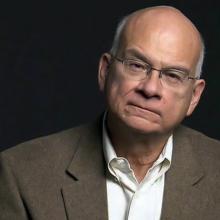princeton theological seminary
“PRAYER AND PROTEST are not two different things.” Princeton Theological Seminary professor Keri L. Day’s proclamation—part of a rousing sermon she preached on the first day of Black History Month—provoked applause and amens from students gathered for worship in the newly renamed Seminary Chapel.
These seminarians recognized the truth of Day’s words because they had galvanized a prayerful protest to change the name of what had been known—for 129 years—as Miller Chapel. The building name honored Samuel Miller, a white Presbyterian minister who in 1813 became the second professor at Princeton Seminary. Like many of the institution’s founders, Miller preached “the enormity of the evil” of chattel slavery yet opposed the movement for immediate abolition. Miller was also an enslaver who held a number of people in bondage during his tenure at the seminary. Miller believed that Black people “could never be trusted as faithful citizens.” He played a key role in making Princeton Seminary the unofficial theological headquarters of the American Colonization Society, formed in 1817 to send free African Americans to Africa as an alternative to multiracial democracy.
Recently the seminary has begun to reckon with this past. In 2018 the institution published a report documenting and confessing its sinful “connections to slavery.” In 2019 the board of trustees made a $27.6 million investment in a range of initiatives that seminary president M. Craig Barnes characterized as “the beginning of our community’s journey of repair.”
WHEN THE WASHINGTON Football Team announced its new name in February, some longtime activists were less than impressed. “The way the franchise and its fans act like the past half-century never happened,” responded Amanda Blackhorse, a member of the Navajo Nation, “like we’re supposed to cheer for something that should have happened decades ago.” For Blackhorse and many others, a symbolic step like a name change—which the team’s leadership was forced to take, “kicking and screaming,” in the face of a campaign that began in the 1960s—“feels hollow” without genuine action to back it up, beginning with acknowledging the damage and making real efforts to repair the harm done to communities.
But getting rid of offensive names, while not a replacement for reparative, structural change, isn’t without significance. And it’s not only about sports franchises—many religious institutions have their own work to do, often involving legacies that go back centuries. Princeton Theological Seminary confronted just such a case earlier this year concerning its chapel named in honor of Samuel Miller, the seminary’s second professor.
The focus of [Jas Singh]'s farm is not production, but invitation — to allow all manner of flesh-and-blood to participate in the mysterious and divine but simple work of God’s kingdom — one where everyone who is fed, and those who typically don’t have the means to provide actually find they have an abundant harvest to share with their neighbor. It is a way to radically engage in leveling the field for all to give, receive, and partake in a way that doesn’t match our unjust economic structures.
“It is not my practice to censor the invitations to campus from any of our theological centers or student organizations,” Barnes said in a letter addressed to the seminary community. “Yet many regard awarding the Kuyper Prize as an affirmation of Reverend Keller’s belief that woman and LGBTQ+ persons should not be ordained… In order to communicate that the invitation to speak at the upcoming conference does not imply an endorsement of the Presbyterian Church in America’s views about ordination, we have agreed not to award the Kuyper Prize this year.”
As the seminary said in announcing the award, Keller “is widely known as an innovative theologian and church leader, well-published author, and catalyst for urban mission in major cities around the world.”
But Keller is also a leader in the Presbyterian Church in America, or PCA, which is the more conservative wing of U.S. Presbyterianism and does not permit the ordination of women or LGBTQ people.
Bugsplat is software used to calculate and reduce the death of innocent people in drone strikes. It's also how Predator drone operators talk about the people whom the American military kills in these missions. The Bureau of Investigative Journalism estimates that the U.S. is responsible for 2,500 deaths in Pakistan, Yemen, Somalia since 2001, including dozens of children. This figure doesn¹t even count Iraq and Afghanistan. But we don't know for sure how many innocents die because most Americans, including too many of our political and military leaders, do not even know when drone strikes happen, whom exactly they target and why, and whether they are successful in achieving their objectives.
Drone attacks require the president's review and approval. And it is the military's responsibility to execute plans so that no innocent lives are lost. But our democracy is a work in progress, and it will only function well if American citizens stay involved. Given President Obama's request last fall for Congress to approve strikes in Syria, we should call on elected officials to fully debate the 2001 Authorization for Use of Military Force — which has often served as a blanket legal justification for drone strikes, going far beyond its original purpose to take action against those responsible for the September 11 attacks. Repealing the act will help reinstate the checks and balances that are hallmarks of democracy. Our leaders must be more transparent.
For the Obama administration and the Bush administration before it, drone strikes kill terrorists before terrorists can kill innocents, and the strikes keep American soldiers out of harm’s way.
But for a group of faith leaders, drones are a crude tool of death that make killing as easy as shooting a video game villain, and they put innocents in harm’s way.
These religious critics — 150 ministers, priests, imams, rabbis, and other faith leaders who gathered at the Interfaith Conference on Drone Warfare at Princeton Theological Seminary in late January — have spent the weeks since drafting a statement that calls on the U.S. to halt targeted lethal drone strikes.
“There are enough problems with the current drone policy and the use of drones that we need a break,” said the Rev. Richard Killmer, director of the conference. “Drones have become a weapon of first resort and not last resort. It has made it a lot easier to go to war.”






